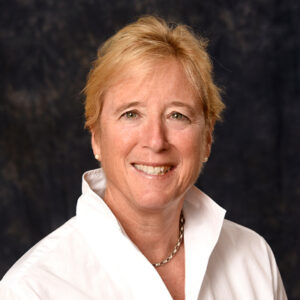We had the privilege of working with Norm Coleman in the International Cancer Expert Corps (ICEC), the NGO he founded in 2013 and where he served as the Senior Scientific Advisor (an approved outside activity from his work at the NCI).
Throughout his career Norm was passionate about the need to address the significant inequities in cancer treatment locally wherever he worked, and across the globe. His efforts were not meant to be charitable but rather because it was the right and just thing to do. His mantra was to listen to people about their needs, and to continue to “show up” in order to demonstrate an ongoing commitment — this in turn would build trust and lead to a partnership to improve care with each party respecting the other.
While Norm was a very humble person, his stature globally was immense in cancer and in his role with the U.S. government on emergency preparedness and nuclear and radiologic security.
This approach attracted many other incredibly accomplished people to contribute to the effort, and to learn from him because he made it noble and meaningful work. He was most proud of the involvement of early career physicians. He always had time to provide career advice to anyone who reached out to him….and many did!
Since it was founded, ICEC developed partnerships between academic medical centers and cancer centers in Low-Middle-Income Countries; became recognized as a leading voice within the global community on ways to improve access to radiation therapy; served on the board of the Conference of Non-Governmental Organizations in Consultative Relationship with the United Nations (CoNGO); supported studies in the Baltic states, Central Asia and the Caucuses funded by the U.S. Department of Energy, to understand the level of access to linear accelerator-based Radiation Therapy (RT) for cancer patients with the goal to reduce reliance on Cobalt-60 radiation therapy machines that pose a radiologic security risk; became a member of an IAEA eleven member partnership of global cancer societies working to increase access to radiation therapy; and with funding from the family of his mentor at Stanford, Dr Henry Kaplan, established the C. Norman Coleman/Paul Kaplan Endowment Fund for Mentorship with grants going to early career investigators each year.


Source for all photos: International Cancer Expert Corps




Division of Human Health at the International Atomic Energy Agency, shake hands at a meeting of the IAEA.
While Norm was a very humble person, his stature globally was immense in cancer and in his role with the U.S. government on emergency preparedness and nuclear and radiologic security. This enabled him to launch, through the ICEC, a major global collaboration with the European Organization for Nuclear Research (CERN) in Geneva, the UK Science Technology and Facilities Council’s Daresbury Accelerator Lab, Oxford, Cambridge and Lancaster Universities, and healthcare and cancer program representatives in Africa that is working to develop a new radiation therapy treatment system designed for LMIC environments where there is very little access to this vital cancer treatment.
Norm was planning to spend the last chapter of his life working full-time with the ICEC as he said it represented the culmination of what was most important to him professionally and personally (apart from his family to which he was devoted above all). Sadly, that was not to be, but true to his dedication, he spent the last weeks of his life speaking personally with those involved in ICEC across the globe—whether it was in cancer treatment, medical physics, accelerator physics, radiation security, radiation biology, health disparities, healthcare systems improvement, etc—and commissioning each to carry on with his vision for improving global cancer treatment.
While no one can fill Norm’s shoes with his broad and deep expertise, his passion has been contagious with much exciting work ahead, many who are on board, and an open invitation to others.
We will miss Norm’s ongoing inspiration, his friendship and support which knew no bounds, and of course his humor which always surprised and delighted us. We each had long-time connections to Norm in our cancer work with the National Coalition for Cancer Survivorship and the NCI and we are most grateful that he engaged us with him in this noble and meaningful work.
The family of C. Norman Coleman, MD will be hosting a Memorial and Celebration of life to commemorate his life and global impact.
The memorial will be in Washington, D.C. on Monday, April 8, 2024, starting promptly at 11:00 AM with doors open at 10:00 AM. If you would like to attend, please RSVP to sierra.kelleher@iceccancer.org to confirm and receive event details. Please include your name, job title/institution, and an optional comment or tribute in your email.
ICEC and the Coleman family also would like to thank the community for the outpouring of support and tributes that have already come in from our friends and partners worldwide who are not able to be here in person. Norm’s influence was one of a kind and truly reached the greater global community.













